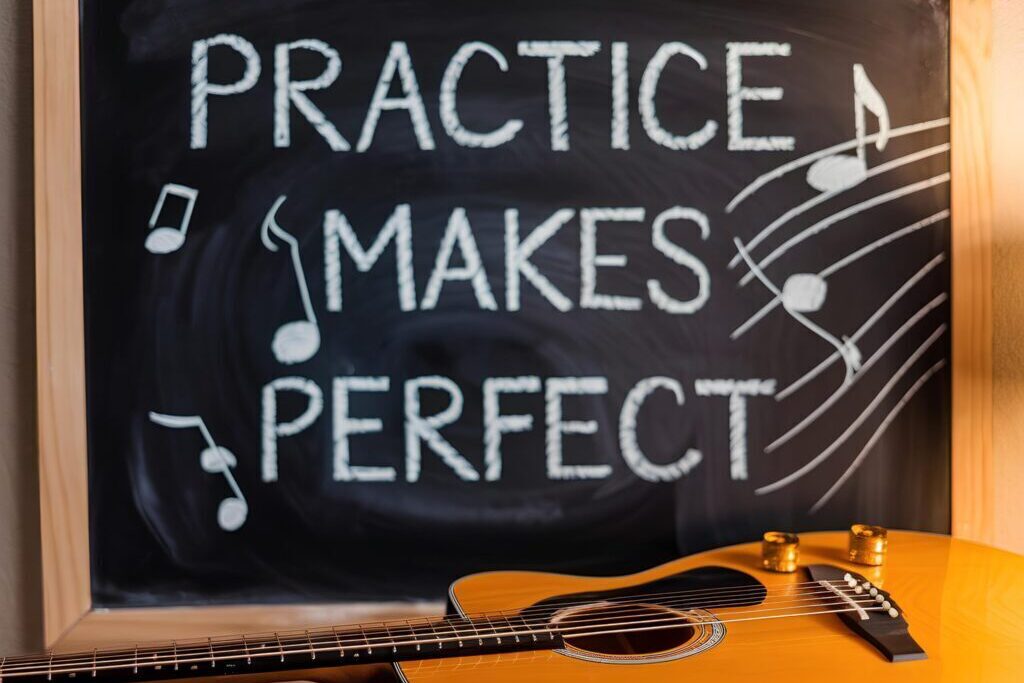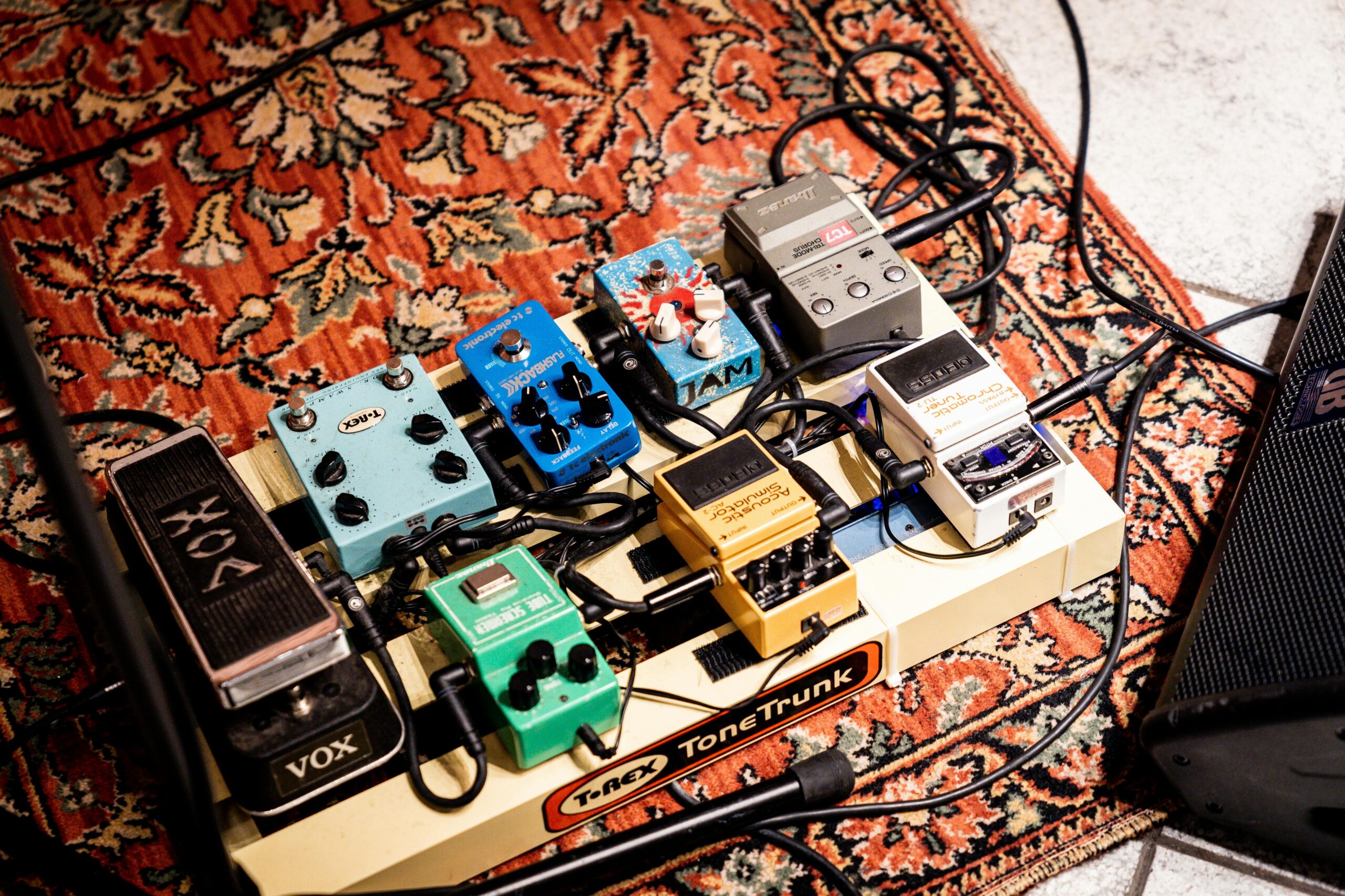Time You Put In
Ok, this one is obvious. If you don’t put in the hours, you’re not getting anywhere. You’ve probably heard about the “10,000-hour rule” to master something—that’s probably true. But you can play simple songs much sooner (roughly within a three-month period) if you incorporate one hour a day of deliberate practice.
For beginners, the most painful stepping stones are: sore fingertips, frustration with hard chord shapes (barre chords, I’m looking at you). My father always complains to me about sore fingertips and how he can’t change chords fast enough. But when I ask him how often he practices, it’s usually once or twice a month. 😄
You see, for playing to feel like second nature, you need to put in the initial time with deliberate, daily practice. For example, now, after years of playing, even if I don’t play for three months, I would still be able to play classic rock songs with ease.
The Mistake of Weak Guitar Players
The mistake most weak guitar players make is playing, not practicing (there are exceptions, like when trying to make music and be creative, which I’ll discuss here). People often just run through their pieces. When I practice, I always spend the most time on the hardest part of the song. Think of it like an athlete training for a race—they don’t just run the course at full speed every time; they work on their sprint, endurance, and breathing techniques separately to build up their skills. I really focus on drilling that down; once you build confidence with the hardest part, the rest of the song will come together more easily.
Start Slow, and Build Up
When practicing a hard part of a riff or solo, always start slow and build up. What I mean by that is, don’t fake the part! Don’t pretend—it won’t make you a good guitar player. The best way I’ve found to practice is to drill the part slowly, while really focusing on the rhythm and phrasing of the lick. It means nothing to play a bunch of notes fast if they don’t make sense. What you’ll see and hear is that if you practice slowly one day, the next day you’ll play the part better. Muscle memory is your friend! It makes you feel like a particular part is embedded in your brain!
Dont Get Discouraged
This is perhaps the most important part. I see it in others all the time: they get discouraged when things don’t fall into place immediately. Mastering any instrument is hard; it requires delayed gratification. That’s why it feels great to finally be able to play—it’s the result of hard work, not instant gratification!
Sometimes it’s just not your day (this happens to me, too), sometimes the part or song just doesn’t click with you, and sometimes you need to change your guitar teacher.
Everyone has a unique approach to learning, so find what works for you.
Final Thoughts
Learning guitar is an incredibly rewarding journey. The tips I’ve shared here—practicing slowly, focusing on tough sections, and sticking with it—can help you along the way. Remember, everyone’s journey is different, and it’s okay to take it at your own pace.
What challenges do you face in your guitar journey? Share your experiences below! Let’s connect and support each other as we work toward becoming the guitarists we want to be.

